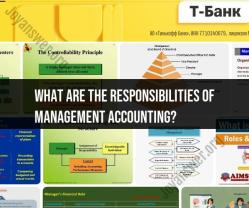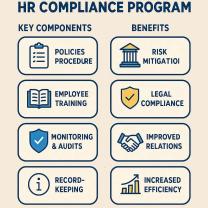What does the word business mean?
The term "business" can have multiple meanings depending on the context in which it is used. Generally, the term encompasses various aspects related to the production, buying, selling, and exchange of goods or services with the primary objective of making a profit. Here are a few key conceptual understandings of the word "business":
Commercial Activity:
- Business often refers to commercial or economic activities conducted with the intention of earning a profit. It involves the exchange of goods or services between buyers and sellers.
Organizational Entity:
- Business can also describe an organization or entity engaged in commercial, industrial, or professional activities. This includes companies, corporations, partnerships, and sole proprietorships.
Profit Motive:
- The concept of business is closely associated with the profit motive, where individuals or organizations seek to generate a financial gain by providing products or services that meet the needs or demands of consumers.
Entrepreneurial Endeavors:
- Business is often linked to entrepreneurship, involving the creation, development, and management of enterprises. Entrepreneurs take risks to establish and operate businesses with the goal of achieving success and profitability.
Trade and Commerce:
- Business includes various activities related to trade and commerce, such as manufacturing, retailing, wholesaling, and distribution. It involves the flow of goods and services through the market.
Investment and Capital:
- Business operations often require investment of capital for the acquisition of resources, production, marketing, and other essential activities. Managing financial resources is a critical aspect of running a business.
Risk and Uncertainty:
- Businesses inherently involve risk and uncertainty. Factors such as market changes, competition, economic conditions, and technological advancements can impact the success or failure of a business venture.
Legal and Regulatory Framework:
- Business activities are governed by legal and regulatory frameworks. Compliance with laws, regulations, and ethical standards is crucial for businesses to operate responsibly and sustainably.
Creation of Value:
- Successful businesses create value for customers by offering products or services that meet their needs or solve problems. The ability to provide value is a key driver of business success.
Globalization:
- In a globalized world, businesses can operate on an international scale, engaging in cross-border trade and establishing a presence in multiple countries.
Sustainability and Corporate Social Responsibility:
- The concept of business has evolved to include considerations of sustainability and corporate social responsibility (CSR). Many businesses now focus on environmental and social impacts, in addition to financial performance.
In essence, business encompasses a wide range of economic, organizational, and commercial activities aimed at meeting the needs of consumers and stakeholders while achieving financial success. The nature of business can vary across industries, sectors, and organizational structures.
What are the fundamental principles behind the concept of 'business'?
Business, at its core, revolves around creating and delivering value to customers in exchange for their money, time, or other resources. This fundamental principle is supported by several key sub-principles:
1. Value creation:
- Businesses must identify and understand the needs and wants of their target customers.
- They must create products and services that address those needs and wants in a way that is superior to the alternatives available.
- Value can be delivered through a variety of means, including tangible products, intangible services, experiences, and solutions to problems.
2. Exchange:
- Businesses cannot create value in a vacuum. They need to exchange their offerings with customers in a way that is mutually beneficial.
- This exchange typically involves the transfer of money from the customer to the business in exchange for the product or service.
- The exchange process should be fair, transparent, and mutually beneficial for the business and the customer.
3. Profit:
- While not the sole purpose of business, profit is essential for its long-term survival and growth.
- Profit allows businesses to invest in research and development, expand their operations, and reward their investors and employees.
- Achieving profit requires businesses to manage their resources effectively, operate efficiently, and maintain a competitive edge in the marketplace.
4. Sustainability:
- Successful businesses recognize the need to operate in a sustainable manner that considers environmental, social, and economic factors.
- This involves using resources responsibly, minimizing negative impacts on the environment, and contributing positively to the communities they serve.
- Sustainable business practices are not only good for society but can also enhance a company's long-term financial performance and brand reputation.
5. Ethics and integrity:
- Businesses have a responsibility to operate ethically and with integrity.
- This includes complying with laws and regulations, adhering to fair business practices, and treating customers, employees, and other stakeholders with respect.
- Ethical businesses build trust and loyalty, which are essential for long-term success.
In addition to these fundamental principles, other key concepts that contribute to successful business include:
- Innovation: Continuously developing new ideas and products to stay ahead of the competition.
- Agility: Adapting quickly to changing market conditions and customer needs.
- Entrepreneurship: Taking risks and venturing into new opportunities.
- Leadership: Providing vision, direction, and motivation to employees.
- Teamwork: Collaborating effectively to achieve common goals.
Understanding and applying these principles is crucial for anyone who wants to start, run, or work successfully in the business world. By focusing on creating value, building relationships, and operating ethically, businesses can contribute to a thriving economy and a better future for everyone.












